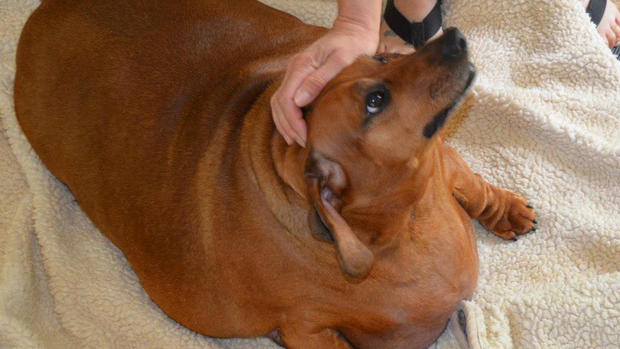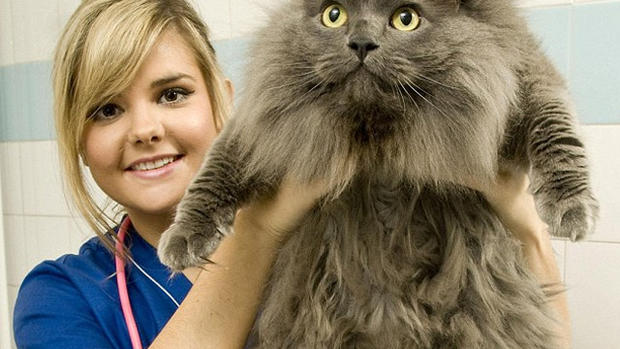1 in 4 American dogs and cats is overweight
Do you own a portly pooch or a corpulent kitty? Unfortunately, the answer in the United States is all too likely to be yes.
Nearly one in every four dogs and cats in the United States is overweight or obese, according to recent numbers tallied by the Banfield Pet Hospital. The problem is so pervasive that the Association for Pet Obesity has declared Oct. 9 National Pet Obesity Awareness Day.
Banfield collects nationwide data on pet health through its 800 animal hospitals spread over 43 states. According to their veterinarian's observations, American pets have a fat problem. Overweight dogs have become 37 percent more prevalent compared with five years ago. For cats, the number is a stunning 90 percent. [Heavy Hounds: A Gallery of Portly Pooches]
Despite the dire numbers, 76 percent of dog owners and 69 percent of cat owners think Fido and Fluffy are just fine the way they are. That's a problem, according to veterinarians, because extra weight means a higher risk of arthritis, heart disease and respiratory problems -- just as in humans.
In fact, another Banfield report showed that between 2006 and 2010, doggie diabetes rose 32 percent from 12.2 cases per 10,000 to 17.4 cases per 10,000. Cat diabetes, which is strongly linked to obesity, rose 16 percent, from 55.5 cases per 10,000 to 64.3 cases per 10,000 in that same time period.
As of 2012, Minnesota was home to the highest prevalence of overweight dogs, followed by Utah, Nebraska, Nevada and Iowa. Minnesota also beat out the rest of the country for overweight cats, followed by Nebraska, then Iowa, Utah and Oklahoma.
A dog or cat at the proper weight should have an obvious waist, with ribs that are easily felt but not seen, according to Banfield. An overweight or obese pet will have too much padding over the ribs for them to be easily felt, an undefined waist, and obvious belly fat. Trouble breathing when active is another sign your pet may be overweight.
Since the upsurge in pet obesity seems to have similar roots to weight gain in humans, some pet weight-loss methods, such as interactive weight-monitoring tools and exercise equipment, have been modeled after humans weight-loss programs.
Follow Stephanie Pappas on Twitter and Google+. Follow us @livescience, Facebook & Google+. Original article on LiveScience.
- Here, Kitty, Kitty: 10 Facts for Cat Lovers
- Like Dog, Like Owner: What Breeds Say About Personality
- 7 Surprising Health Benefits of Dog Ownership
Copyright 2013 LiveScience, a TechMediaNetwork company. All rights reserved. This material may not be published, broadcast, rewritten or redistributed.

